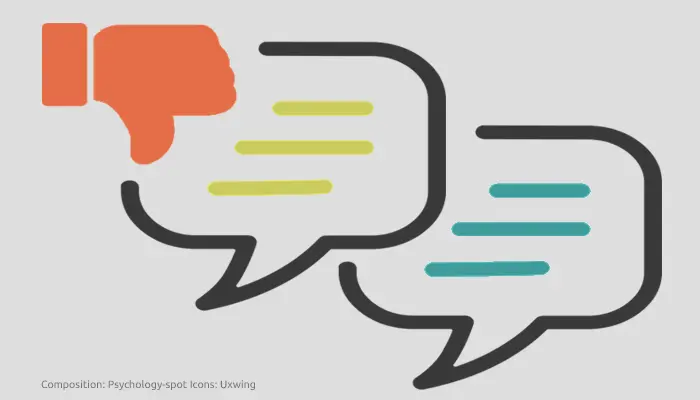
Giving moral lessons is easy, follow them is usually more complicated. In spite of this, sobering moralists and staunch defenders of values who look down on others abound everywhere.
These people feel morally superior and claim the right to judge and condemn the others. They become judges and executioners, despising those who do not share their values and “violate” their rules. They think that they have a monopoly on the Truth, as if only they lived in a state of moral grace and the rest of the mortals in the most absolute sin.
Obviously, we would expect such people to behave more ethically and follow the same moral rules by which they judge the others. However, according to research conducted at the Free University of Amsterdam, many of these people are more prone to moral hypocrisy; In other words, they judge the others extremely harshly, while giving themselves the permit to violate moral norms by applying themselves more lax codes of conduct.
The more we care what others think, the more hypocrites we will be
In a first experiment, these psychologists asked 198 participants, mostly students, to rate four scenarios that described a moral transgression, such as sharing information about a confidential project with a friend.
Some participants imagined that they were the ones committing the transgression while others had to imagine that the transgressor was a partner. Subsequently, they had to assess the level of moral guilt of themselves or of the partner.
These people also took a test to assess their sensitivity to justice, asking them, for example, how upset they would be if someone did not receive the reward they deserved. In addition, they filled out a questionnaire in which was evaluated their interest in managing their reputation; That is, how willing they were to change their behavior to impress the others.
The results showed that people who were not overly concerned about their reputation and image, but who were more sensitive to injustice, blamed themselves more than their peers for transgressing moral norms.
However, people who cared a lot about their reputations and who held high moral standards were more likely to blame the others for violating the rules. That is to say, they showed an evident moral hypocrisy: Although they said that they were concerned about justice, in reality they were more lenient with their rulings.
In a second experiment in which 301 participants had to share $10 with another person, deciding whether to do it fairly or unfairly, the researchers also found that those who had higher moral standards, and were overly concerned with their reputations, tended to blame the person who kept the most money, calling him/her selfish, but they were much more benevolent when they were the ones who hoarded the most loot. In other words, if the others made an unfair distribution they criticized them, but if they did they justified themselves.
Morally condemning others, a strategy to feel superior
To some degree, we all think of ourselves as virtuous and may even rate ourselves above average. We like to nurture a positive self-image and think we’ll do the right thing when the time comes. In fact, moral superiority has its roots in historical hypocrisy since each era and culture believes itself to possess and guarantee the most solid and high values, often ridiculing or severely judging the values of other cultures and eras.
Therefore, moral superiority almost always has a component of self-deception – both on a social and personal level – especially when it makes us think that we have the right to judge the others using our yardstick. Many times this moral hypocrisy arises from an inferiority complex that generates unconscious behavior to compensate for absences and frustrations.
In fact, the researchers concluded that “People can easily resort to condemnation as a strategy to prove their righteousness to others.” In other words, judging the others is a way to elevate themselves and convey a more upright, laudable, and moral image of themselves.
However, everything seems to indicate that these rules of moral superiority do not apply to their case since they are more lax when judging their own actions. Overly self-righteous and image-conscious people may be more prone to double standards and moral hypocrisy.
In summary, those who proclaim strong values to the four winds and believe they have the right to judge the others, are less likely to follow that moral path because, as Carl Jung said, we are what we do, not what we say we will do.
Therefore, before giving moral lessons, we should all look into the mirror, and before we let the judgments of others undermine our identity, we should remember that all that glitters is not gold. Although perhaps the simplest rule to survive in these troubled times full of offended and self-righteous is: treat the others as you would like to be treated.
Source:
Dong, M. et. Al. (2023) Being good to look good: Self-reported moral character predicts moral double standards among reputation-seeking individuals. British Journal of Psychology; 114(1): 244-261.



